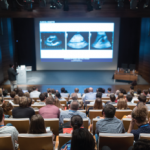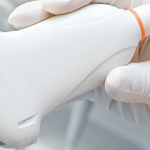Any professional organization is only as good as the volunteers and staff that lead it. When one sits on the board, one has the privilege of working intimately with the president of the ACR, and we have had three fine presidents over the past three years: Sherine Gabriel, MD, MSc, professor of medicine and epidemiology at the Mayo Clinic in Rochester, Minn.; Stanley Cohen, MD, at Rheumatology Associates in Dallas; and David Borenstein, MD, at Arthritis and Rheumatism Associates in Washington, D.C. They each placed their personal stamps on their year. Sherine’s quiet demeanor allowed board members to fully vocalize their views. Nevertheless, she ran efficient and productive meetings. Stan’s year was a contrast in styles. Never shy to confront controversy, Stan had a year notable for considerable heated debate on many issues, but he always found a way to guide the discussion to a fruitful conclusion. David’s year was remarkable for his desire to improve pain management; he set that as an objective for the organization. Note that the presidents often alternate between the “practice oriented” and the “academic oriented” background, in keeping with the all-embracing mission of the ACR to advance rheumatology.
Mark Andrejeski is not only a diehard Pittsburgh Steelers fan (which endears him greatly to me), but has been the ACR’s executive vice-president for the past 25 years. I can only hope he will work for the ACR for a great many more years. His experienced hand has seen the organization through lean financial times to our current strong fiscal position. I am pleased to report the ACR abounds in outstanding and experienced staff in key positions, giving the committees institutional memory and perspective. They assist the committee chairs, who rotate every three years. Turnover among ACR staff is extremely low, a testimony to the organization’s leadership, and staff morale always seems high. Nevertheless, because rheumatology is a relatively small cognitive specialty, when it comes to staffing numbers and projects, we must exercise more budgetary restraint than the much larger primary-care physician organizations and the wealthier procedure specialties. We must always wisely select our staff, our projects, and our battles.
The Committee on Communications and Marketing, chaired by Eric Matteson, MD, chair of rheumatology at the Mayo Clinic, crafted a public relations campaign to promote rheumatology. It is not easy to create a promotional campaign that does not appear to be a self-serving product. The campaign is sophisticated, yet has a very simple targeted message: “Simple tasks can become impossible because of rheumatic disease.” Members should be pleased. I am not sure why the ACR never before conducted such a campaign. The need to inform key stakeholders, collectively referred to as “influencers,” of who we are and what we do seems obvious to me now. The message has even been shown on a jumbo electronic billboard in New York City’s Times Square. Perhaps some day we will not have to explain what a rheumatologist does. And how does Eric have time to do this and still research the history of vasculitis figures like Kussmaul and Wegener, run his unit at the Mayo Clinic, and conduct clinical research, all in his spare time?
Practice and Education
Another issue that has occupied board attention is the role of musculoskeletal ultrasound. It has been in widespread use among European rheumatologists for years, but the use of musculoskeletal ultrasound in the U.S. has been limited. The utility of the procedure was highlighted in an ACR white paper published in 2010.1


